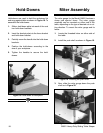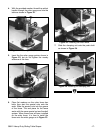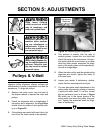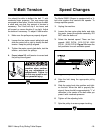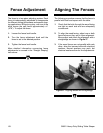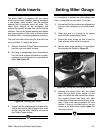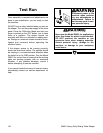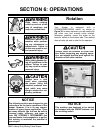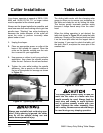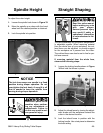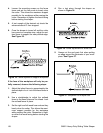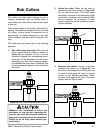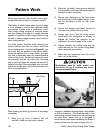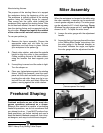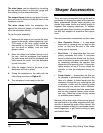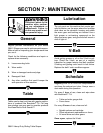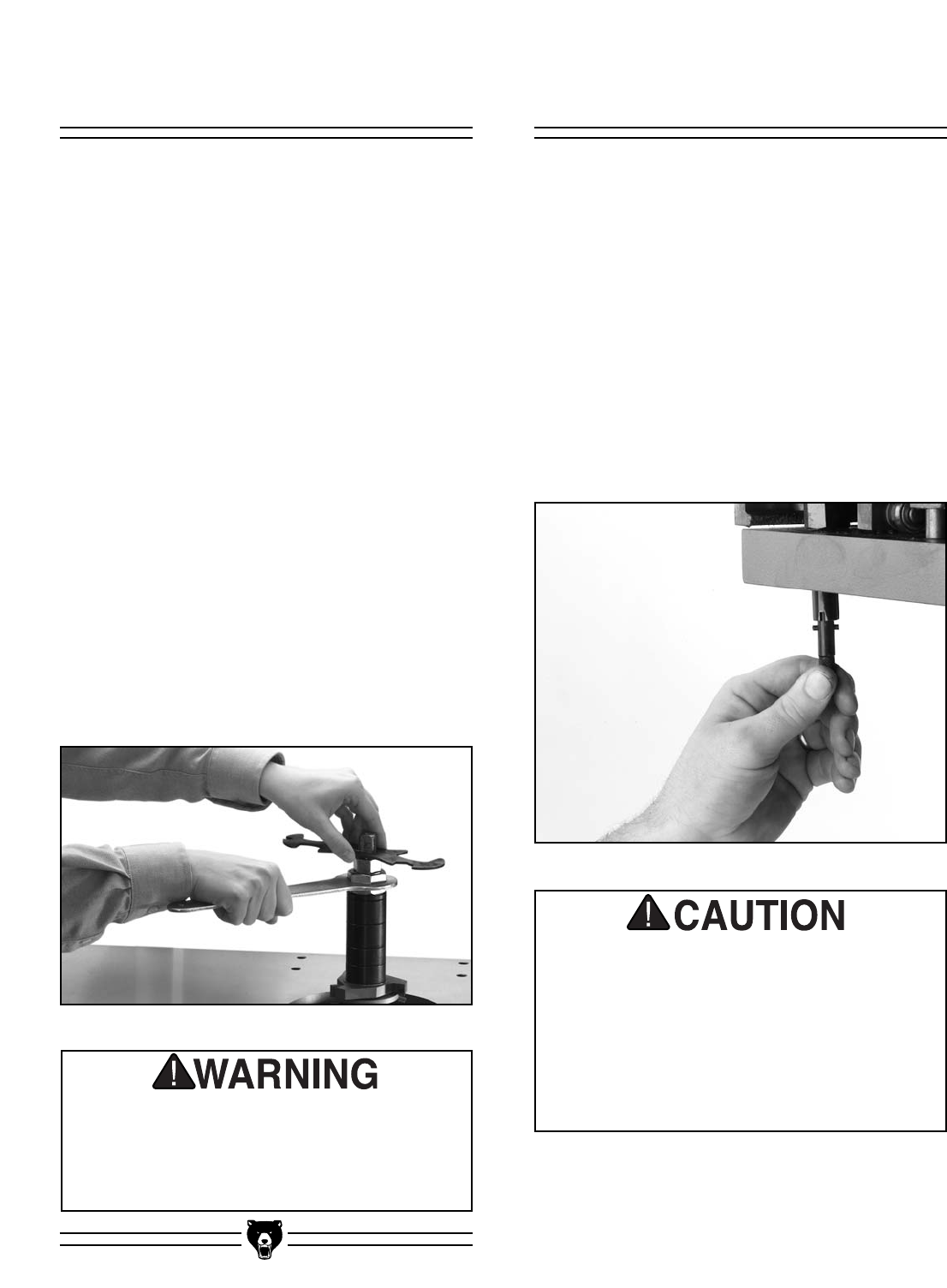
-24- G8621 Heavy-Duty Sliding Table Shaper
Cutter Installation
Your shaper operates at speeds of 3600, 5100,
8000 and 10,000 R.P.M. 3
1
⁄
2
" or larger cutters
must be operated at the slowest speed.
Always use the largest spindle size possible, and
never use more than one bushing size to gain two
spindle sizes. ”Stacking” two cutter bushings to
decrease the inside diameter of the cutter will
cause the cutter to perform incorrectly when
placed under a load.
1. Unplug the shaper.
2. Place an appropriate spacer or collar at the
base of the spindle for support. Place the
cutter on the spindle, making sure the rota-
tion is correct for your application.
3. Use spacers or collars to suit your particular
application, then place the spindle washer
under the nut. Screw on the nut and locknut.
4. Tighten the nuts while holding the spindle
stationary. Use a wrench on the notches at
the top of the spindle for leverage as shown
in Figure 31.
Table Lock
The sliding table works with the clamping miter
gauge to allow you to secure your workpiece to
the table and make the cut by sliding the table.
This feature greatly increases operator safety
because it keeps hands away from the cutter-
head.
When the sliding operation is not desired, the
table lock shown in Figure 32 will make the table
stationary. Simply pull the knurled shaft and twist
it so the cross pins slide into the largest slots in
the housing. If you want to unlock the table, pull
the shaft, twist it, and place the cross pins in the
smallest slot.
Figure 32. Table lock.
The sliding table makes it easy to feed the
work into the cutter at a faster rate than
would normally be used. Always feed the
work slow and steady to avoid kickback
and to achieve smooth results with your
work. Although the miter assembly does
aid in safety, common sense should always
be used during every shaping operation.
Figure 31. Tightening spindle nuts.
Always use a spindle lock nut during oper-
ation. If this warning is ignored, the cutter
may fly off the spindle during use and
cause severe personal injury.



